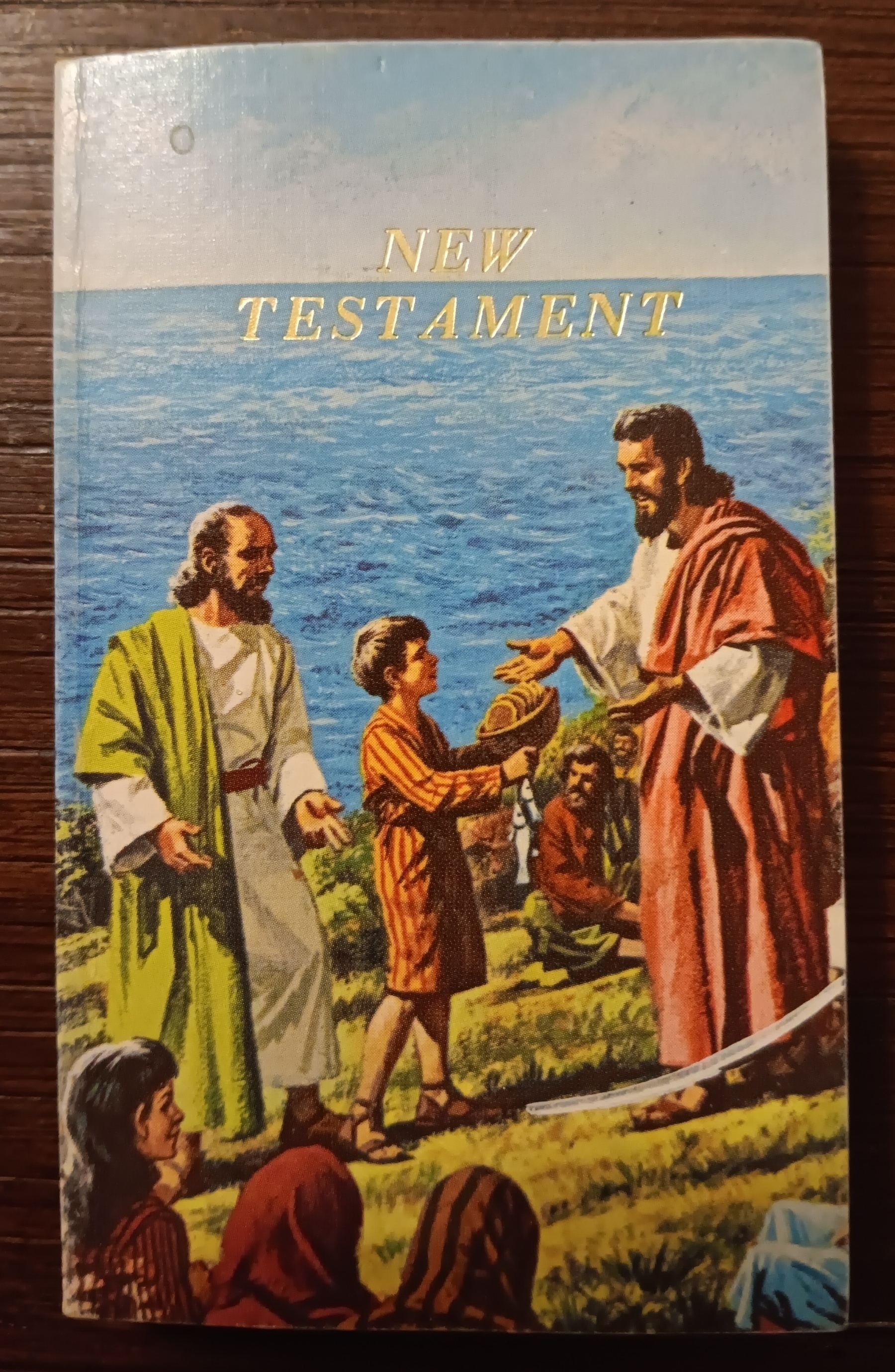How can this strange story of God made man, of a crucified saviour, of resurrection and new creation become credible for those whose entire mental training has conditioned them to believe that the real world is the world which can be satisfactorily explained and managed without the hypothesis of God? I know of only one clue to the answering of that question, only one real hermeneutic of the gospel: a congregation which believes it.
Does that sound too simplistic? I don’t believe it is. Evangelism is not some kind of technique by means of which people are persuaded to change their minds and think like us. Evangelism is the telling of good news, but what changes people’s minds and converts their wills is always a mysterious work of the sovereign Holy Spirit and we are not permitted to know more than a little of his secret working. But – and this is the point – the Holy Spirit is present in the believing congregation gathered for praise and the offering up of spiritual sacrifice, scattered throughout the community to bear the love of God into every secular happening and meeting. It is they who scatter the seeds of hope around, and even if the greater part falls on barren ground, there will be a few that begin to germinate, to create at least a questioning and a seeking, and perhaps to lead someone to enquire about the source from which these germs of hope came. Although it may seem simplistic, I most deeply believe that it is fundamental to recognize that what brings men and women and children to know Jesus as Lord and Saviour is always the mysterious work of the Holy Spirit, always beyond our understanding or control, always the result of a presence, a reality which both draws and challenges – the reality who is in fact the living God himself. And his presence is promised and granted in the midst of the believing, worshipping, celebrating, caring congregation. There is no hermeneutic for the gospel but that.
Genuine prayer is not a deed, an exercise, a pious attitude. Rather it is the request of the child to the heart of the Father. That is why prayer is never demonstrative, neither before God nor before ourselves, nor before others. If God did not know what I need, then I would have to think about how I should tell God, what I should tell God, whether I should tell God. But the faith out of which I am praying prevents such reflecting or demonstrating.
The only required reflection for disciples is to be completely oblivious, completely unreflective in obedience, in discipleship, in love. If you do good, do not let your left hand know what your right hand is doing. You should not know your own goodness. Otherwise it will really be your goodness, and not the goodness of Christ. The goodness of Christ, the goodness of discipleship takes place without awareness. The genuine deed of love is always a deed hidden to myself. Pay heed that you do not know it. Only in this way is it the goodness of God. If I want to know my own goodness and my own love, then it is no longer love. Even the extraordinary love of enemies remains hidden to disciples. When they love their enemies, then they no longer view them as enemies. This blindness of the disciples, or rather this vision enlightened by Christ, is what makes them certain. The hiddenness of their lives from themselves is their promise.
the true meaning of Christmas




Currently reading: A Canticle for Leibowitz by Walter M. Miller 📚

Currently reading: This America: The Case for the Nation by Jill Lepore 📚

Finished reading: The Virtue of Nationalism by Yoram Hazony 📚
A very readable book. Hazony’s arguments are clear, his writing lucid. One of his main contentions is that the best political order is “an order of independent national states.” He sees this order as the ideal mean between violent anarchy and hegemonic empire. While in a previous work Hazony looked at the Hebrew Bible as a source for philosophical reflection, in The Virtues of Nationalism he considers how the Old Testament ought to inform political theory. He argues that there is a “biblical preference” for the national state, though he doesn’t base his position solely on scriptural grounds. He’s especially critical of all “imperialist” political projects, of which he sees the European Union as the greatest contemporary example. The current “liberal imperialist” impulse, according to Hazony, owes much to Kant’s “enlightened” vision of humanity’s progress from anarchy to national independence to world empire. He contrasts the imperialist vision—given to abstraction, intolerant of those who demur at their utopian dreams for humanity—with that of the nationalist—a particularist, loyal to his nation but also humble and self-critical enough to be skeptical of over-extending his limited perception of the good. Much to chew on here, that’s for sure.
George Marsden, describing the conflicting impulses within modern fundamentalism (i.e., the religious New Right), which is partly a result of it being one of the heirs to that collection of diverse traditions known as American evangelicalism:
Fundamentalism…is fraught with paradoxes. It is torn between uncivil controversialism and the accepting attitudes necessary for being influential and evangelizing effectively. Often it is otherworldly and privatistic; yet it retains intense patriotism and interest in the moral-political welfare of the nation. It is individualistic, yet produces strong communities. It is in some ways anti-intellectual, but stresses right thinking and true education. It accentuates the revivalists' appeal to the subjective, yet often it is rationalistic-inductivist in its epistemology. It is Christianity derived from an ancient book, yet shaped also by the technological age. It is anti modernist, but in some respects strikingly modern. Perhaps most ironically, it offers simple answers phrased as clear polarities; yet it is such a complex combination of traditions and beliefs that it is filled with more ambiguity and paradox than most of its proponents or its opponents realize.
“Advent” by Sarah Klassen
(source: Rowan Williams' A Century of Poetry)
We are waiting (again) for the One
who has already come
and gone, leaving us
bereaved.
One waiting in the wings
for the cue - political, apocalyptic
or dramatic - to step into view,
descend,
be finally revealed
to the bewildered crowd -
complicit or without guile.
And to a remnant, impatient
for the curtain to rise on some
anticipated vindication. As if
flamboyant entry to a final act
will finally untangle everything:
a flawless denouement. As if
(if you’re not left behind)
a book will open up,
page after blinding page.
A prophet’s alleged to have said:
we cannot believe in one for whom -
for reasons philosophical,
emotional or rational -
we do not
(cannot,
will not any longer)
wait.